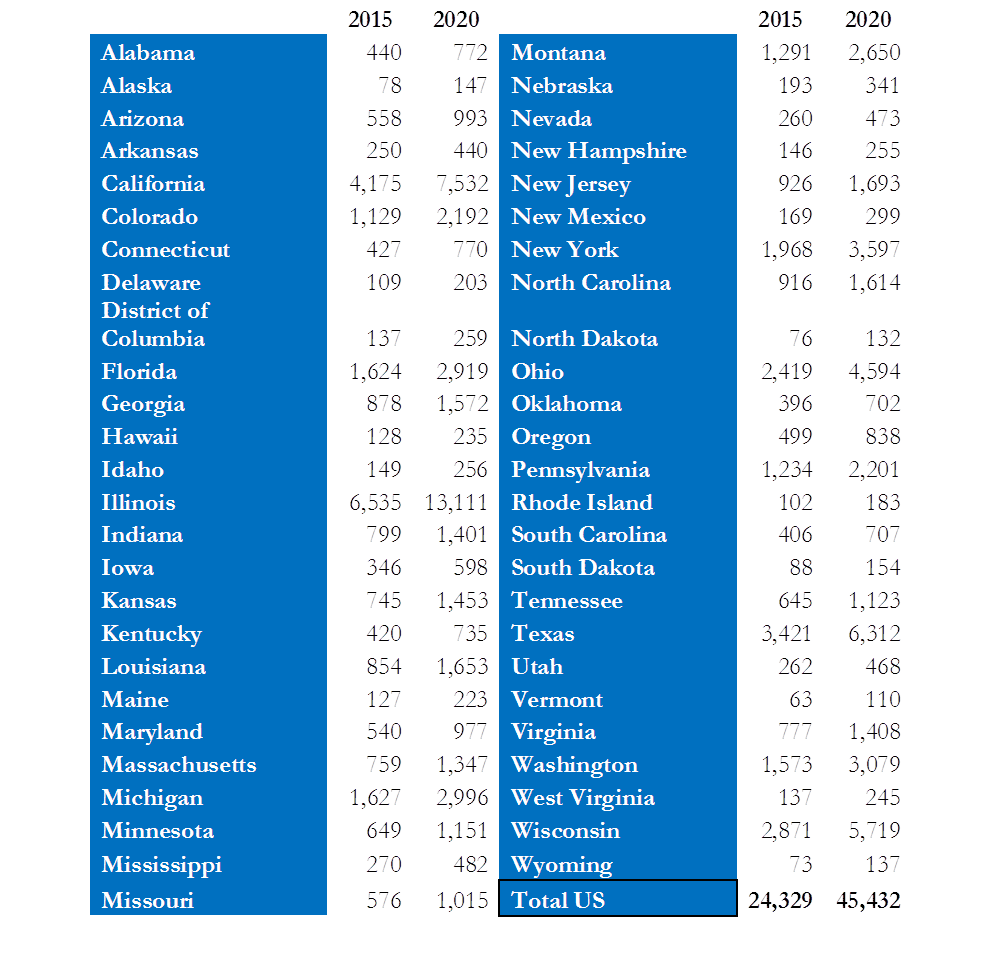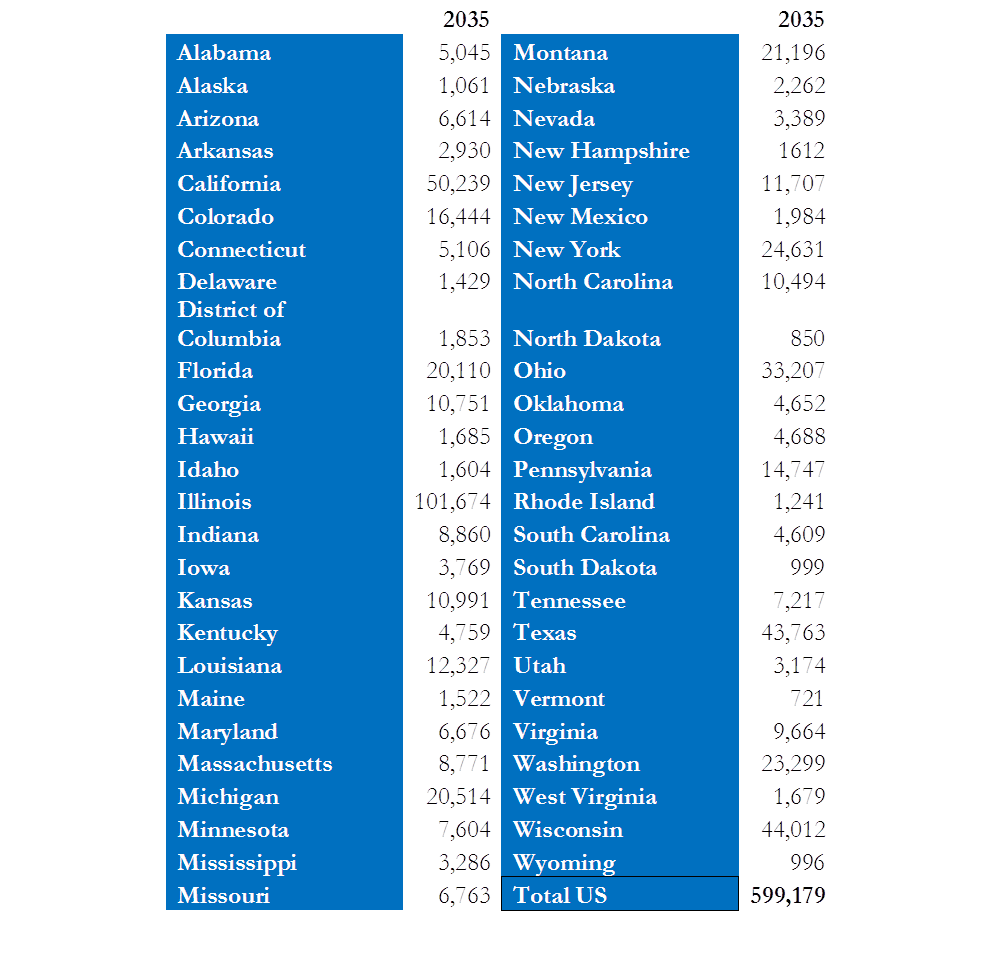The Honorable John Kerry
Secretary
U.S. Department of State
2201 C Street, N.W.
Washington, DC 20520
Re: Comments on Proposed Keystone XL Pipeline Project Draft Supplemental Environmental Impact Statement (EIS No. 20130056);
Dear Secretary Kerry:
The Institute for 21st Century Energy (Energy Institute) is an affiliate of the United States Chamber of Commerce, the world’s largest business federation representing the interests of more than 3 million businesses of all sizes, sectors, and regions, as well as state and local chambers and industry associations, and dedicated to promoting, protecting, and defending America’s free enterprise system. The Energy Institute believes that construction of TransCanada’s Keystone XL (KXL) pipeline project is in our nation’s best interest, and is pleased to submit these comments supporting TransCanada’s Keystone XL (KXL) pipeline project and the findings of the draft Supplemental Environmental Impact Statement (DSEIS) published in March 2013.
According to the Energy Information Administration (EIA), petroleum fuels will remain the largest energy source worldwide for decades in the future. As the global economy recovers and developing economies continue to rapidly expand, competition for petroleum and all forms of energy will increase throughout the world.
Canada is an important and reliable trading partner and is by far the largest supplier of oil and natural gas to the United States, supplying 12 percent of U.S. petroleum consumption needs and 18 percent of U.S. petroleum imports. Stable, long-term energy supplies from Canada are critical to U.S. energy security at a time when global supplies are often found in geopolitically unstable regions of the world, and production from once-reliable sources is slowing.
As stated in the DSEIS, U.S. refineries in the Gulf Coast rely mostly on foreign imports of heavy crude oil, particularly from Venezuela and Mexico whose volumes of crude exports are in decline, and less stable countries in the Middle East and Africa. When completed, the KXL pipeline will have the nominal capacity to supply over 800,000 barrels per day of heavy Canadian crude oil to U.S. refineries and new market access and improved distribution to Gulf refineries for 100,000 barrels per day of U.S. domestic crude produced in the Bakken region in Montana and North Dakota. This will yield tremendous benefit to U.S. refiners and consumers. According to the DSEIS “While the increase in U.S. production of crude oil and the reduced U.S. demand for transportation fuels will likely reduce the demand for total U.S. crude oil imports, it is unlikely to reduce demand for heavy sour crude at Gulf Coast refineries.” The DSEIS also states “The long-term contracts supporting the proposed Project indicate that refiners see economic advantages to processing heavy WCSB (Western Canadian Sedimentary Basin) crude oil as well as domestically produced Bakken light crude oil, which are both growing in supply and may be less expensive to transport to the refinery than imported crude oils that are shipped by tanker.”
The increased supply of crude oil from KXL will greatly contribute to our economic and energy security, and our move toward North American energy self-sufficiency. According to the EnSys Energy Report (December 2010) conducted for the U.S. Department of Energy on the KXL pipeline project, the projected increase in the U.S. refining of Canadian crudes “would curb dependency on crude oils from other sources notably the Middle East and Africa.” As recently reported by Bentek (2012), combined U.S. and Canadian production are expected to grow by over 3,100 million barrels per day by 2016, and Canadian imports to the U.S. could increase by 900 thousand barrels during that period, causing crude imports from outside of North America to drop by forty-one percent. In fact, Bentek expects U.S. imports of crude from outside of North America to decrease to less than ten percent of our oil supply by 2020.
The economic impact and long term benefits of the construction of the KXL pipeline are significant and vitally important to American jobs and our economy, especially during this time of economic recovery. According to the DSEIS, KXL will create 3,900 direct construction jobs annually and 42,100 direct and indirect well-paying jobs during KXL’s two-year construction phase, providing over $2.05 billion in earnings for American workers. Along with the $3.3 billion that TransCanada will spend on construction materials, over $65 million in sales and use taxes will be generated during construction for state governments and local entities where the pipeline is located.
In addition, with the completion of the pipeline, TransCanada will become one of the single largest property taxpayers in Montana, South Dakota, and Nebraska. During the operating life of the entire pipeline (including Gulf Coast project), TransCanada will pay $5.2 billion in property taxes to state and local communities. This revenue will help support key local services like schools, fire, and police services, and needed projects like roads, bridges, recreation facilities, and new schools – thus helping create and support additional construction jobs and economic benefits.
As stated earlier, Canada is an important and reliable trade partner for the U.S. Due to the deep trading relationship, it is estimated that for every $1.00 spent to buy oil from Canada, $0.90 is returned in the purchase of U.S. goods or services. The development of Canadian oil sands resources already supports tens of thousands of American workers in hundreds of companies spread throughout the Unites States who are supplying goods and services to oil sands developers. The approval of the Keystone XL pipeline will help allow for the continued growth in development of the oil sands and an increased flow of trade between the U.S. and Canada. The Canadian Energy Research Institute (CERI) estimated the impact of this trade on state employment in a June 2011 report.
The tables that follow are based upon CERI’s results. The first table indicates the expected increase in jobs per state by 2015 and 2020 resulting from the growth in development of oil sands and the U.S. trade benefit due to the completion of KXL. The second table indicates the expected increase in jobs per state by 2035 resulting from the continued growth in development of Canadian oil sands and the U.S. trade benefit if all planned new projects, including KXL, are completed. During these tough economic times and high levels of unemployment, it is important to note the significant benefit that KXL can have for workers in a state like Illinois (13,111 new jobs by 2020) that is suffering from 9.5 percent unemployment, or Michigan (2,996 new jobs by 2020) with 8.8 percent unemployment, and even Pennsylvania (2,201 new jobs by 2020) that has 8.1 percent unemployment.
Table 1: Jobs supported by the KXL pipeline (Source: CERI June 2011). Indicates the potential U.S. job benefits resulting from the growth in development of oil sands and the U.S. trade benefit due to the completion of KXL. (Note: estimates do not include jobs associated with the actual construction of the KXL pipeline.)

Table 2: Jobs supported by full development of Canadian oil sands (Source: CERI June 2011). Incorporates all oil sands projects currently operating and planned, and the necessary infrastructure to support them (including KXL).

The DSEIS builds on the U.S. Department of State 2011 Final Environmental Impact Statement (FEIS) analyses and includes a comprehensive review of the new route in Nebraska as well as “any new circumstances or information that is now available on the largely unchanged route through Montana and South Dakota.” This comprehensive, extensive, and thorough independent environmental review reaffirmed what was found in the 2011 Final Environmental Impact Statement, that “there would be no significant impacts to most resources along the proposed Project route.” The new route avoids the environmentally-sensitive Sandhills region and minimizes potential impacts in Nebraska. It has the approval of both the Governor of Nebraska and the Nebraska Department of Environmental Quality. TransCanada has also agreed to adopt an additional 57 special safety measures that exceed current regulatory requirements which were developed by the U.S. Pipeline and Hazardous Material Safety Administration. The August 2011 FEIS said these measures would give the pipeline “a degree of safety over any other typically constructed domestic oil pipeline system under current code.”
The majority of the KXL project has been under review for close to five years, taking into consideration comments and information collected through multiple hearings, comments periods, and interagency processes. Public citizens, governments, Tribal governments, and non-governmental organizations have all taken part in the review process. It is more than time to move forward, grant the Presidential Permit and allow KXL construction to begin.
The Energy Institute opposes any additional review requirements that would further delay the proposed KXL pipeline. This critical project will help enhance American energy security and create much needed jobs and investment, and should be approved as soon as possible. Any further delays will postpone our realization of the economic and energy security benefits of the project.
The Institute for 21st Century Energy urges the Department of State to move forward and designate the Keystone XL pipeline project as in our nation’s interest and issue the Presidential Permit needed so that this important project can proceed. Building the Keystone XL pipeline is critical to America’s energy and economic security and vital to creating jobs and putting Americans back to work. We appreciate the opportunity to participate in this process and look forward to working with the Department of State and other Federal agencies to enhance our Nation’s energy security.
Sincerely,
Karen A. Harbert
cc: The Honorable Steven Chu, Secretary of Energy
The Honorable Denis McDonough, White House Chief of Staff
To download this letter, please click here.

